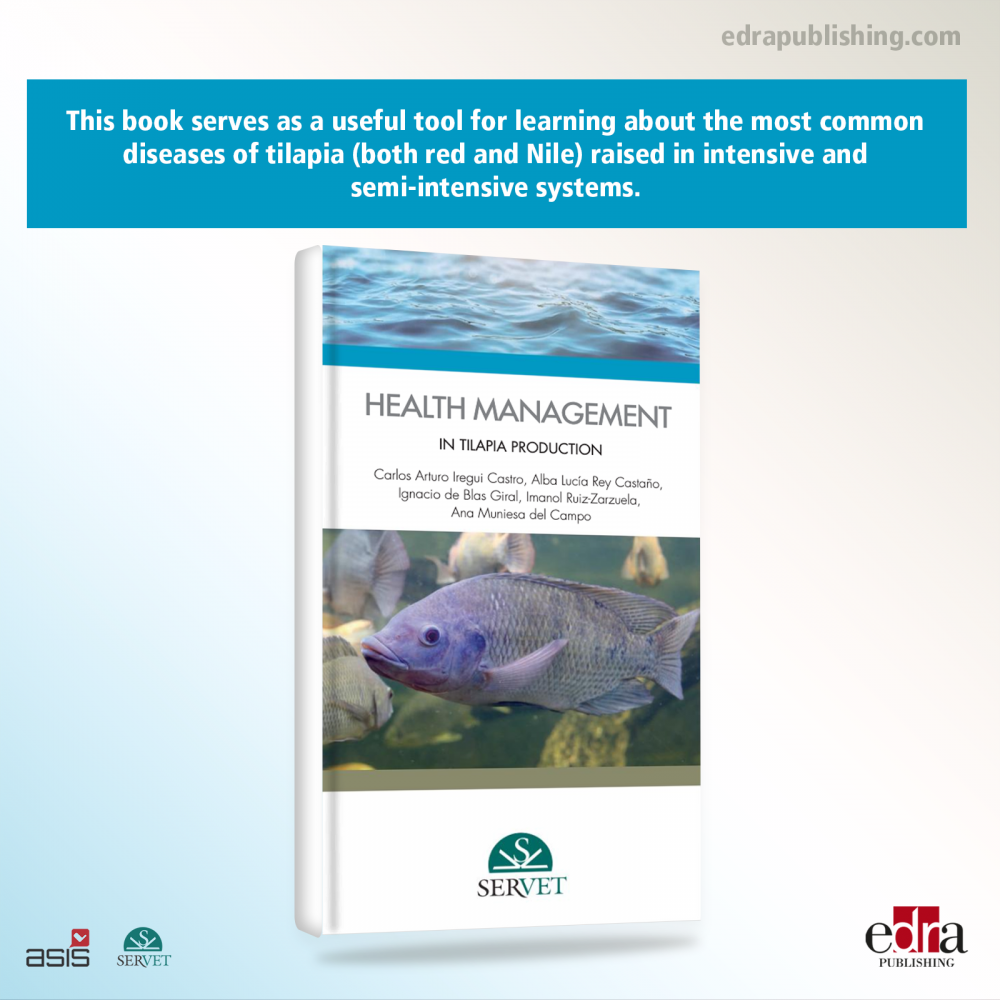





This book serves as a useful tool for learning about the most common diseases of tilapia (both red and Nile) raised in intensive and semi-intensive systems. It covers both macroscopic and microscopic lesions as well as elements of production and parameters of water quality which are critical to determining the health and disease of these fish.
This book serves as a useful tool for learning about the most common diseases of tilapia (both red and Nile) raised in intensive and semi-intensive systems. It covers both macroscopic and microscopic lesions as well as elements of production and parameters of water quality which are critical to determining the health and disease of these fish.
AUTHORS:
CARLOS ARTURO IREGUI
Lecturer at the Faculty of Veterinary Medicine and Animal Husbandry of the National University of Colombia
IGNACIO DE BLAS GIRAL
Associate lecturer in the Department of Animal Pathology in the Faculty of Veterinary Medicine at the University of Zaragoza. IMANOL RUIZ-ZARZU
ANA MUNIESA DELCAMPO
Associate professor and lecturer in Epidemiology, Biostatistics and Integration in Aquatic and Exotic Animals for the veterinary medicine degree at the University of Zaragoza.
IMANOL RUIZ-ZARZUELA
Associate lecturer in the Department of Animal Pathology in the Faculty of Veterinary Medicine at the University of Zaragoza.
KEY FEATURES:
➜ Useful and accessible tool for learning about the most common diseases of tilapia.
➜ Covers the two main varieties of tilapia (red and Nile).
➜ Covers both macroscopic and microscopic lesions as well parameters of water quality.
TABLE OF CONTENTS:
1. Introduction
Principles of tilapia anatomy
Principles of tilapia histology
Principles of animal pathology
2. Viral diseases
Syncytial hepatitis of tilapia (TiLV)
3. Main bacterial diseases
Streptococcal infection caused by Streptococcus agalactiae
Other streptococcal infections
Aeromoniasis caused by Aeromonas hydrophila
Edwardsiellosis caused by Edwardsiella tarda
Columnaris caused by Flavobacterium columnare
Francisellosis caused by Francisella sp.
4. Main parasitic diseases
Trichodinosis caused by Trichodina
Chilodonellosis caused by Chilodonella
White spot disease or freshwater ich (Ichthyophthirius multifiliis)
Intestinal coccidiosis
Infestation by digeneans
Infestation by monogeneans
5. Diet-related diseases
Excess or poor-quality protein in commercial feeds
Deterioration in the quality of one or more of the feed components
Feed contamination
Unidentifiable material in the gastrointestinal tract
6. Changes in water quality
Thermal stress
Environmental hypoxia
Low or high pH
Ammonium and ammonia
Fish waste and other pollutants
7. Biosecurity measures
Sampling
Measures of control and prevention
8. Bibliography
Data sheet
Specific References